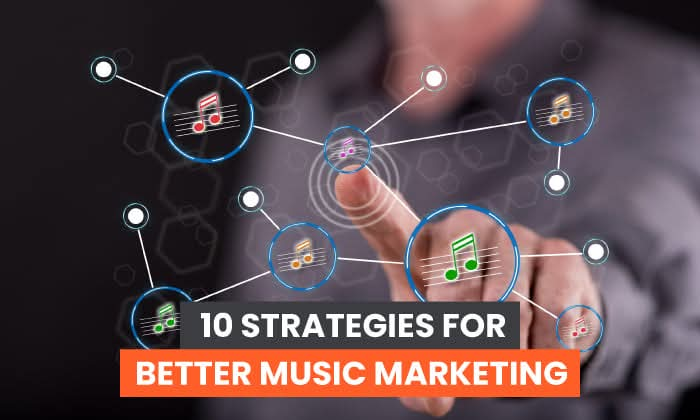Muhammad Althaf
Oud Metha - Dubai
Products & Services:
Digital Marketing Strategy, Google Ads Services, SEO Services, Video Consulting Services, Corporate More..
Since : 2015
Oud Metha - Dubai
Products & Services:
Digital Marketing Strategy, Google Ads Services, SEO Services, Video Consulting Services, Corporate More..
Since : 2015
In today’s competitive business environment, traditional marketing techniques often fall short in delivering the fast and scalable results needed by startups and enterprises. That’s where Growth Hacking Strategists in Dubai come into play. These specialists are data-driven, tech-savvy marketers who focus solely on accelerating business growth through innovation, rapid experimentation, and creative digital solutions.
Dubai, being a tech-forward, entrepreneurial hub, has seen a surge in demand for growth hacking professionals. Whether it’s for scaling a SaaS product, building a user base for a fintech startup, or enhancing revenue in a D2C brand — growth hacking strategists are the secret weapon behind many success stories in the region.
Let’s explore what these experts do, their role in Dubai’s market, and what clients expect from them.
A Growth Hacking Strategist is a marketing expert who designs and implements creative, data-driven strategies to achieve rapid business growth. Unlike traditional marketers, growth hackers combine technology, analytics, content, and psychology to build cost-effective systems that attract, retain, and convert users at scale.
1. Muhammad
Althaf
Office Court Building -315, 14 Street,
Near Oudmetha Metro Station, Green Community Village,
Dubai
2.
Aamir Hussain
Tech Bay Business Center, Office 104,
Al Quoz Industrial Area 3,
Dubai
3.
Rania Khalid
The Prism Tower, Office 1608,
Business Bay,
Dubai
4.
Saeed Rahman
Office 22, Building C,
Dubai Silicon Oasis Headquarters,
Dubai
5.
Fatima Al Mazrouei
Office 3B, Al Hudaiba Awards Building,
Jumeirah Road,
Dubai
6.
Neeraj Sharma
Office 308, Al Hawai Tower,
Sheikh Zayed Road,
Dubai
7.
Lara Thomas
Dubai Media City, Building 6,
Office 218,
Dubai
8.
Omar El-Sayed
Office 501, Blue Bay Tower,
Marasi Drive, Business Bay,
Dubai
9.
Zainab Farooq
Office 7, Level 2,
Dubai Design District (d3),
Dubai
10. Ahmed Bilal
Office 210, Saeed Tower 1,
Sheikh Zayed Road,
Dubai
In the fast-paced
digital landscape, where startups rise overnight and competition grows by the
hour, traditional marketing methods are often too slow and expensive. This is
where a Growth Hacking Strategist steps in—a professional who
uses creative, low-cost strategies to help businesses achieve rapid and
scalable growth.
Growth hacking
isn’t just a buzzword. It’s a data-driven, results-focused approach that blends
marketing, product development, and analytics into one powerful growth engine.
Let’s explore what a Growth Hacking Strategist does, why they’re important, and
how they can elevate your business to the next level.
A Growth
Hacking Strategist is a hybrid marketer—part creative, part technical,
and part analyst—focused entirely on growing a business as fast and
cost-effectively as possible. Their primary goal isn’t branding or awareness
(though those are byproducts); it’s measurable growth, usually in
the form of users, revenue, conversions, or engagement.
Unlike traditional
marketers, growth hackers rely heavily on A/B testing, automation,
viral loops, referral strategies, and analytics. They look for unconventional
shortcuts, scalable tactics, and iterative experimentation.
1. Identify Growth Bottlenecks
A growth
strategist begins by diagnosing where your business is stuck. This could be a
low conversion rate, weak traffic, high churn, or slow acquisition.
They use
tools like:
to
pinpoint issues and create targeted experiments to address them.
2. Design and Run Experiments
Growth
hackers constantly test hypotheses using rapid, low-cost experiments. For
example:
These
experiments are small but fast, designed to learn quickly and iterate
immediately.
3. Collaborate With Product and Engineering Teams
Growth
isn’t just a marketing problem—it’s often a product experience problem.
That’s why growth hackers work closely with developers and product managers to:
They
ensure the product itself becomes part of the marketing engine.
4. Leverage Automation and Tools
Automation
is essential for scalability. A strategist will set up workflows using tools
like:
These
save time, reduce errors, and allow small teams to scale outreach and customer
management.
5. Analyze, Measure, and Scale
No
experiment is worth doing if it's not measurable. Growth hackers track metrics
like:
Once a
tactic shows results, it’s scaled using ad platforms, influencer partnerships,
or product iterations.
A Growth
Hacking Strategist is a multi-disciplinary professional who combines
creativity, analytics, and technical expertise to drive rapid and scalable
growth. Their success depends not just on marketing know-how, but on their
ability to experiment, analyze, and pivot quickly. Below are the key skills
that make a growth hacking strategist effective and indispensable in modern
digital business environments:
1. Data Analysis and Interpretation
Growth
hackers thrive on data-driven decision-making. They need to:
Why it
matters: Without
solid data interpretation skills, growth efforts are just guesswork.
2. Technical Know-How
Though
they don’t need to be full-stack developers, growth hackers benefit from basic
technical knowledge like:
Why it
matters: This
allows them to experiment with website elements, implement tracking codes, and
run growth tools independently.
3. Creativity and Innovation
Growth
hacking thrives on unconventional ideas. A successful strategist can:
Why it
matters:
Creativity helps stand out in saturated markets and uncover unique growth
opportunities.
4. Funnel Optimization (AARRR Framework)
Growth
hackers must understand the full user journey, from awareness to
revenue:
Why it
matters: Growth
is not just about acquisition—it’s about optimizing each step of the funnel.
5. Rapid Experimentation and A/B Testing
Growth
hacking is built on trial and error. A strategist must:
Why it
matters: Quick
experiments help validate ideas without wasting time or money.
6. Digital Marketing Proficiency
Understanding
digital channels is essential. This includes:
Why it
matters: Knowing
which channel suits which stage of the funnel ensures a balanced growth
approach.
7. UX and Customer Psychology
Growth
hackers must think like users:
Why it
matters:
Understanding customer behavior leads to better onboarding flows, CTAs, and
retention strategies.
8. Automation and Workflow Building
A skilled
growth hacker is adept at automating repetitive tasks using:
Why it
matters:
Automation frees time and allows small teams to scale big operations.
9. Communication and Collaboration
Since
they often work across departments—marketing, product, dev teams—a growth
strategist must:
Why it
matters: Growth
is a team sport; collaboration is crucial.
1. Rapid Experimentation
Growth
hackers continuously test different hypotheses through A/B testing,
multivariate testing, and live experiments. They:
2. Data-Driven Decision Making
Everything
is measured. Growth hackers rely on key metrics like:
3. Building Scalable Growth Loops
Instead
of one-time campaigns, growth strategists create self-reinforcing loops
where one user brings in more users.
Examples:
4. Cross-Functional Collaboration
Growth
hackers often work across departments — marketing, product, engineering, and
customer success — to ensure:
5. Customer-Centric Focus
User
experience (UX) and feedback are at the heart of growth hacking. They:
6. Automate Everything Possible
Automation
helps scale efforts with fewer resources. Growth hackers automate:
7. Leverage FOMO and Scarcity
Psychological
triggers are used to drive action. Tactics include:
8. Use of Behavioral Triggers
Smart
segmentation and behavioral triggers improve conversion and retention. For
example:
9. Content as a Growth Engine
Content
is not just about SEO — it’s used for:
10. Always Optimize the Funnel (AARRR Model)
The AARRR
framework (aka Pirate Metrics) is often used:
Growth
strategists optimize each stage to minimize drop-offs and increase lifetime
value.
Q1: What is the difference between a growth hacker
and a digital marketer?
A: A digital marketer often focuses
on awareness, engagement, and branding. A growth hacker, on the other hand, is
laser-focused on growth and scalability through rapid experimentation and data
analysis.
Q2: Is growth hacking only for startups?
A: No. While startups are the
primary users of growth hacking, established businesses, ecommerce brands, and
apps use growth hacking strategies to unlock new channels or reinvigorate
stagnating growth.
Q3: What tools do growth hacking strategists
commonly use?
A: Popular tools include:
Q4: How do I know if my business needs a growth
hacker?
A: If you have a great product but
low traffic, slow growth, or high churn—and you’re not ready to spend big on
traditional marketing—a growth hacker can help you find scalable solutions.
Q5: Can a growth hacker guarantee success?
A: No, but their methodology is
built on experimentation, data, and learning from failures. They aim to
increase the likelihood of success by identifying what works fastest and
cheapest.
Q6: What industries benefit the most from growth
hacking?
A: SaaS, mobile apps, ecommerce,
education tech, health tech, B2B software, and even personal brands or
influencers can see major gains from growth hacking strategies.

Dubai, Oud Metha

Dubai, Oud Metha
Latest Customer Reviews
"Best branding team in dubai👌👌"